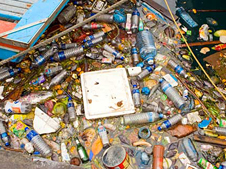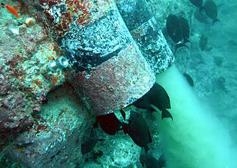The dream of the 2008 presidential campaign is still alive and within reach of the Dhivehi Qaumee Party (DQP), its newly elected leader Dr Hassan Saeed has said.
Speaking at the party’s first congress on Saturday night at Bandos Island Resort, Dr Saeed, who resigned from both the former and current governments, said it was not too late to realise the aspirations of his presidential campaign.
“Our leaders don’t have to always go begging to Europe or the Middle East,” he said. “[Our leaders] won’t have to say with pride that I begged more and secured more money than my predecessor.”
Dr Saeed said Maldivian politicians have never ruled to serve the the people: “They rule to fill their pockets.”
Hard times
Apart from difficult economic circumstances, Saeed continued, islanders were struggling to pay their electricity bills, the cost of living was rising and the government was ruthlessly dismissing elderly security guards.
Dr Saeed said his law firm, Raajje Chambers, was under pressure from banks to take prominent businessmen and resort owners to court to reclaim unpaid loans.
“As a result, it is likely that many resort owners in the country will go bankrupt in the near future,” he said. “Thousands of employees could lose their jobs.”
Meanwhile, development of over 60 resorts was stalled due to failure to secure loans.
While government expenditure increased threefold in the past five years, the quality of life for citizens has not seen any improvement.
“Political posts have increased from 500 to 1,000,” he said. “But has the service from political appointees to the people similarly increased? It has not. The number of police officers has increased by thousands. Crime has not fallen. As the Chief Judge of the Criminal Court in 2003, I earned Rf4,000 (a month). Today the person in that post receives Rf30,500. Has the justice system been strengthened? Has [the judicial process] become faster?”
Moreover, he added, the number of embassies abroad has increased threefold without a corresponding spike in foreign investment.
Looming bankruptcy
The state of affairs today was so dire that local businesses were unable to get foreign loans at an interest rate of even 12 per cent, said Saeed.
“The 65 resorts in the country have not been developed because they couldn’t get loans at even 15 per cent, let alone 12,” he said.
Moreover, he added, the government was giving away assets cheaply and handing over management of schools to foreign parties without considering the benefits to the Maldivian people.
The former special advisor to the president said the government has not given any thought to enriching Maldivian businesses or putting struggling small business back on their feet.
“Maldivians are a talented, educated, young and industrious people,” he said. “All that Maldivians need is just a little opportunity. What Maldivians want is a day when they won’t be forced to fill a form to join the ruling party whenever there is a change of government.”
He added the DQP will not falter in its “national jihad” and would work together with other parties to reach its goals.
“God willing, we will win the upcoming local council elections and the presidential elections after that,” he said.
Power
In his speech, Dr Mohamed Jameel Ahmed, who was dismissed from his cabinet post last year, said the country was in a state of “despair and hopelessness”.
Those who had claimed not to want power was now trying to stay in power at all costs, he said.
While the former government spent Rf4.8 million a month on political appointees, he said, the figure has climbed to Rf9.1 million a month under the Nasheed administration.
Vilufushi MP Riyaz Rasheed, one of the party’s two MPs, said the party has now matured and was ready to play its part in the political arena.
“We did not come out to topple the government. We will try to hold the government accountable…[Only] the people can change the government,” he said.

